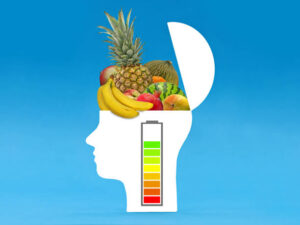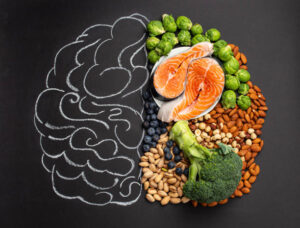Most people are now turning to plant-based diets because of rising health and environmental concerns associated with consuming animal products. But beyond these reasons, many are curious about the health benefits of veganism.
Read more to discover the health benefits of veganism and how switching to a plant-based diet can have a positive impact on your overall well-being. From boosting your heart health to helping with weight management, there’s much to discover about the advantages of going vegan.
What Health Benefits Does Being Vegan Have?
This answer lies in the immediate and long-term advantages of eliminating animal products and focusing on a plant-based diet.
In the short term, vegans experience improved digestion and energy levels. Vegan diets are rich in fiber, which helps smoothly run the digestive system and prevents bloating and constipation. Vegans also feel more energized because they consume foods naturally low in unhealthy fats and high in vitamins and minerals.
In the long run, vegan diets reduce the risk of heart conditions. A diet rich in fruits, vegetables, whole grains, and legumes lowers cholesterol levels and blood pressure, key factors in maintaining heart health. Additionally, many people can easily manage their weight on a vegan diet, as plant-based meals are often lower in calories and more filling due to their high fiber content.
The Health Benefits of a Vegan Diet vs. Vegetarian Diet
Both vegan and vegetarian diets are plant-based, but they differ in their impact on health. Even though vegetarians consume animal products like dairy and eggs, vegans avoid all animal-derived foods.
Some of the differences include:
1. Heart Health
Vegans often experience greater heart health. Since vegan diets completely exclude animal products, they are lower in saturated fats, which can reduce cholesterol levels and the risk of heart disease. Vegetarians, on the other hand, may still consume dairy and eggs, which contain cholesterol and saturated fats, though in lower amounts compared to a typical omnivorous diet.
2. Nutrient Intake
Vegan diets have more fiber, vitamins C and E, and magnesium because they emphasize the consumption of fruits, vegetables, legumes, and whole grains. However, vegans need to be more mindful of getting enough vitamin B12, calcium, and iron, as these nutrients are in animal products. Vegetarians find it easier to get these nutrients from dairy and eggs but may still need to supplement or focus on plant-based sources.
3. Weight Management
Both diets can lead to healthier body weight, but vegans may have a slight edge. Studies suggest that those on a vegan diet tend to have lower body mass indexes (BMIs) than vegetarians, likely because vegan diets are lower in calorie-dense foods like cheese and eggs.
Though both diets offer numerous health benefits, a vegan diet may provide better protection against heart disease and help with weight management, but it requires more attention to certain nutrients. Meanwhile, a vegetarian diet can offer similar benefits while making it easier to meet specific nutritional needs.
4. Reduced Risk of Cancers
Diets high in fruits, vegetables, and whole grains, which are staples in a vegan diet, can reduce the risk of cancers like colon, breast, and prostate. The high levels of antioxidants and fiber in these foods play a crucial role in preventing cell damage and promoting healthy digestion.
5. Improved Digestive Health
A plant-based diet is rich in fiber, which helps regulate bowel movements, prevent constipation, and promote the growth of healthy gut bacteria. This can lead to better nutrient absorption and a stronger immune system.
Is a Vegan Diet Good for You?
The short answer is yes, you can greatly benefit from a vegan diet. However, as with any diet, you must balance and plan your meals well to meet all your nutritional needs.
A well-rounded vegan diet contains all essential nutrients like fiber, vitamins, and antioxidants. It’s rich in fruits, vegetables, legumes, nuts, and seeds, which provide vitamins, minerals, and plant-based proteins. These nutrients support everything from heart health to digestion.
However, it’s important to note that some nutrients are harder to get from a vegan diet, such as vitamin B12, iron, calcium, and omega-3 fatty acids. These nutrients are primarily found in animal products, so vegans must rely on fortified foods or supplements to avoid deficiencies.
Additionally, the high intake of antioxidants, vitamins, and minerals in a vegan diet helps strengthen the immune system. A strong immune system is essential for fighting off illnesses and staying healthy. The high fiber content also promotes a healthy gut, which plays a critical role in immune function.
So, is a vegan diet good for you? Yes, but it requires thoughtful planning. While a vegan diet can offer many health benefits, it’s important to ensure you get enough nutrients that might be lacking without animal products. By paying attention to your nutrient intake and possibly incorporating supplements, a vegan diet can be a highly nutritious and energizing choice.
Conclusion
There are several health benefits of veganism. The abundance of vitamins, minerals, and fiber in plant-based foods can also reduce the risk of chronic diseases and promote overall well-being.
If you’re considering a dietary change, exploring veganism could be a valuable step toward achieving better health. With its numerous advantages, a vegan lifestyle not only supports your physical health but also contributes to a more compassionate and sustainable world.







